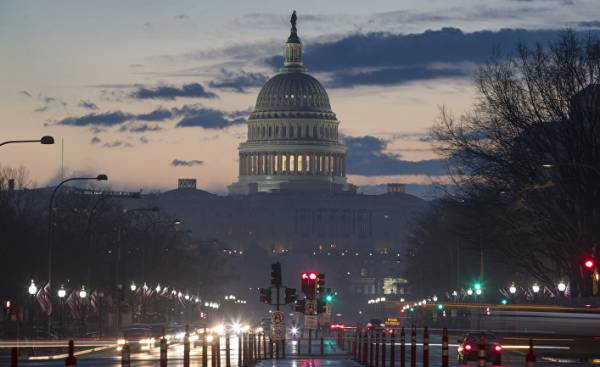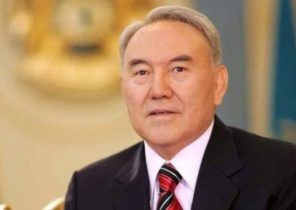
Three weeks later, after President Donald trump suddenly fired the FBI Director James Komi (James Comey), around his administration continues to gain defense of the “Russian scandal”, which has partly contributed to a series of leaks of classified information to the media.
Although many believe that such diversion is necessary in order to inform the public about the activities of the administration, which its critics say is opaque, experts on issues of national security began to argue about whether it is necessary to consider such leaks as a public good or as a security risk.
However, experts on issues of national security and members of the intelligence community agree with each other that the speed with which information gets into the hands of the press, substantially increased.
“Without a doubt, this administration is accompanied by the largest number of leaks in recent history,” said Robert Deutz (Robert Deitz), a veteran of the CIA and the national security Agency, who worked in the administrations of bill Clinton and George Bush, referring to the leaks that emanate from the White house, as well as from current and former officials of intelligence agencies.
According to Deutz, it’s not very good. “As a former intelligence official, I am against leaks. Typically, leaks of classified information cause harm”.
What risks are we talking?
“In fact, when someone is leaking classified information, he betrayed the confidence entrusted to him in that moment, when he was granted access to classified information,” explained Charles Price (Charles Price), a former FBI agent who worked at this Agency for almost 30 years.
In addition, according to price, leaks impede the free and honest exchange of information within the government, forcing people to wonder about who exactly can be trusted.
Some experts claim that the leak, which may have been justified, are no longer such because the officials there are several ways to send secret information, including investigative relations team trump with Russia, the FBI and committees of both houses of Congress.
Susan Hennessy (Susan Hennessey), researcher at the Brookings institution and a former consultant of the NSA, published on the website Lawfare article, where it described the specific risks that can lead to leakage of information collected by electronic reconnaissance. Data electronic intelligence is any information obtained during the interception and recording of conversations between interested parties. All information thus obtained is considered confidential.
The data thus obtained, were included in the reports that the Advisor and son-in-law trump Jared Kushner (Jared Kushner) discussed the possibility of establishing a secret communication channel between trump and Moscow, that the Russian officials discussed the “impartial” information about trump, and that a former adviser to trump national security issues, Michael Flynn (as Michael Flynn) discussed the issue of anti-Russian sanctions with Russian Ambassador Sergei Kislyak during the work of the transition team.
Such leaks, according to price, constitute “disturbing” departure from Protocol security, and they could compromise American intelligence community.
As explained by Price, the people, in respect of which operations are carried out under the wiretapping and interception may believe that their communication device is protected, “but all of a sudden they open the newspaper and read in it the information generated by their device, which they thought was protected.” “At this point, they realize that their network is absolutely not reliable.”
According to price, publication data, thus collected, may indicate that, for whom the United States are surveillance and in using any of the devices — which in turn can help the opponents of the United States to protect itself from such surveillance. That is, leaks can threaten national security, disrupting operations of the intelligence community.
The leakage may carry other risks. Shortly after the publication of the contents of the conversation Flynn Kislyak, Tim Edgar (Tim Edgar) wrote on the Lawfare website that this leak may have violated the civil liberties Flynn.
His conversation with Kislyak was intercepted in accordance with a warrant issued under the Law on foreign intelligence surveillance, which allows to conduct surveillance of any person in the United States, including foreign agents. Orders issued in accordance with this law, must protect the rights of American citizens, such as Flynn who come into a conversation with foreign intelligence agents, such as Kislyak — these rights are guaranteed by the Fourth amendment. Edgar wrote that “the publication and dissemination of such information in purposes other than the surveillance of agents of foreign intelligence almost certainly violates the law and possibly constitutional law Flynn”.
“I don’t remember the contents of conversations intercepted in accordance with the Law on the supervision of foreign intelligence services, was similarly promulgated in the media,” added Hennessy.
“We live in unusual times”
Other experts argue that the situation is not so simple. Given the current circumstances and the unique challenges that come from the trump, leaks, concerning the relations between the President and his team with Russia, “are acts of deep patriotism, protecting the Republic,” said CIA veteran Glenn Carle (Glenn Carle).
“Usually, leakage damage, he said. But we live in unusual times”.
The scandals associated with Russian interference in presidential elections, pursued trump the minute, when he assumed the office of President. These scandals have flared up in March when Komi confirmed to Congress that the FBI is investigating alleged communication campaign headquarters trump with Russia and verifies data on the possible collusion between them.
Even more the situation escalated in may, when trump suddenly fired Komi, who led this investigation. Although the White house initially said that the decision was made on the recommendation of the Deputy attorney General of the Sort Rosenstein (Rod Rosenstein), and later, trump acknowledged that one of the factors that pushed him to this decision, has become “the story with Russia.”
Next appearing in sensational media coverage has caused more and more questions about the motives of the President, dismissing the man who was leading an investigation against him regarding his relations with Russian officials and his alleged attempts to obstruct the investigation against members of his campaign staff.
Shortly thereafter, the Ministry of justice has appointed former FBI Director Robert Mueller (Robert Mueller) special consultant, responsible for the Russian investigation. Recently, using the contact information Kouchner Kislyak, apparently, indicates that the investigation can now reach the highest levels of the White house.
These changes, in part fueled by leaks from the intelligence community, according to Carl, point to “an existential crisis”, which, perhaps, are now worried officials of intelligence agencies.
“You take an oath to defend the Constitution against the attacks of enemies, both internal and external. This is how we serve our country. But now you have to deal with the head who by his actions violates this oath, explained Carl. — If you serve the state, you violate the oath. If you betray the government, you also break your oath. And what are you going to do?”
Claire Finkelstein (Claire Finkelstein), Professor and expert on national security issues at the University of Pennsylvania, agreed Carl.
“Our country faces a serious crisis, if we talk about the leaks. On the one hand, it is important to understand that the President is our commander in chief, we must remain faithful to him, explained Finkelstein. On the other hand, if the President becomes a source of danger for our nation because it does not protect the interests of our country, then the obligation to be faithful to him is severely tested. In such a situation we are now.”
Finkelstein added that, when intelligence officials are in a situation of “conflict of loyalties” due to the fact that their allegiance to the Constitution “in conflict with their obligations to the President, they choose the Constitution. They choose the country. That’s why leaks occur”.
“Very slippery slope”
Some former intelligence officials believe that the surge in the number of leaks may be “dangerous” precedent.
“Usually the debunkers claim that the disclosure of classified information is not bad, — explained the Deutz. But, if the information is classified, you must obey the law and not to disclose it. You can’t just say: “I can reveal this information, but someone else — not because its goals do not suit me””.
According to him, the opposite argument is that the secret information is usually passed eight congressmen from the Republican and Democratic parties, which are involved in intelligence.
“They have the right to disclose such information if they deem it important. They have the right to do so anonymously, passing on this information to the media and they can hold a press conference, explained the Deutz. In this case, officials of intelligence agencies makes no sense to intervene”.
Price confirmed the words of Deutz and added that the intelligence officials who leaked, “decide at some deep level that the rules don’t apply to them”. But, in his opinion, such conclusions, “in fact, are the result of extreme arrogance and pride”.
“If you disclose information, because I believe that people have a right to know it, you start movement on a very slippery slope, noted Price. — You compromise your own integrity, then the Agency that you work for, and the intelligence community as a whole. It is very much desorientiert”.
“Lossless not do”
According to experts, the fact that the Senate is a more objective investigation, and the appointment of Mueller to the position of special adviser should serve as additional protection against new leaks.
“This investigation is very important, because it points to the fact that there are such methods of information transmission, which allows not to involve the public in this process, — said Finkelstein. In this case, information needs to be passed up the chain of subordination”.
Carl did not agree with this point of view. “Remember what happened during the election period, he said. — The intelligence community and the CIA in particular had many sources of information about Russian intelligence activities directed at undermining the foundations of our democracy and support trump”.
“They made the right step, which was to during a series of briefings to inform the eight congressmen, because the information was highly classified, he continued. — What happened then? The majority leader in the Senate and the speaker of the house of representatives said: “You cannot disclose this information. You’re not allowed to publish””.
According to Karl, the Democrats were alarmed and decided to take some steps in this regard. “The Republicans blocked them. From the intelligence community’s hands were tied. What to do next? The only way to publish information through the media. Sometimes sunlight is the best disinfectant”.
Carl also mentioned that former acting attorney General Sally Yates (Yates Sally) as an example of how the information went up the chain of command and was eventually ignored, until she fell into the hands of the media.
In January, Yates warned the White house about talking Flynn with the Russian Ambassador to the administration trump “might take action” in connection with allegations that Flynn could become a victim of blackmail of the Russians.
According to Carl, Yates did the right thing. “She passed the information up the chain of subordination, she did her work, she reported the dangers of collusion and possible pressure on Flynn to his leadership. But the management did not respond — until he stepped press.”
Flynn was forced to resign when the Washington Post reported on the content of his conversations with Kislyak.
“The actions of Yates was OK, but we are in a situation which could hardly be called normal, said Carl. — It is necessary either to commit treason or to leak information to the press. Without loss can not do.”
“So you have to choose the lesser of two evils, hence the leak”.
Finkelstein emphasized the need to protect sensitive information — such as, for example, information about the alleged negotiations, Kouchner and Kislyak on the establishment of a secret channel of communication — from leaks to the press, however, it noted that the current situation is unique.
In her opinion, this may be the “rare example” when the disclosure of classified information are justified, “given the danger that comes from Russia, the unwillingness of our government to confront Russia and possible collusion between members of the nearest environment of the trump and the Russian agents”.
She added that the proposal Kushner made the Dubious, “points risk” facing the U.S., while Kouchner, the right of access to classified information.
“Some information is confidential because its disclosure poses a serious threat to national security, she explained. — Some information is confidential because its disclosure could compromise the sources and methods of intelligence.” Information concerning contacts Kushner and Flynn with the Russians, was kept secret for a second reason.
Finkelstein continued, “But on the other hand, the inability to communicate this information to the public, too, can have a negative impact on national security. In history with ties trump and Russia that is what concerns me the most.”
“It’s not just in the political clash”
Despite disagreements on the question of leaks of classified information, representatives of the office of national security agreed that the possible relationship of the tramp with Russia and its uneasy relationship with the intelligence community represent a unique threat to the United States.
“When the administration calls the three or four reasons for the dismissal of the Director of the FBI, it is unsettling,” said Price, adding that now many are wondering whether the dismissal of Komi politically motivated.
The dismissal of Komi “shocked”, and, according to price, the underlying motives have caused serious concern, because the FBI is “an apolitical organization, which follows wherever the evidence leads it and which, in fact, still, where they will lead, because she is above politics”.
He continued: “But if the public believes that the FBI is trying to achieve their own selfish goals, this is, in essence, destroys the reputation of the FBI as an effective human rights organization, because we rely on the public trust”.
“Maybe Komi made mistakes, but he was honest, dignified and non-politically motivated person. This is evidenced by the fact that it equally strongly criticized both Democrats and Republicans.”
According to Finkelstein, trump is not suitable for the position of President for several reasons, including the fact that he tried to conceal information about his assistants relations with Russia, to save his administration.
“This President and his administration can’t protect us, said Finkelstein, — because of his ties with a country that is an enemy of the United States, and due to the fact that he is under pressure.”
According to Karl, the consequences of which intelligence officials faced for leaking information about the investigation of relationships trump and Russia, a “very serious”, and despair of the intelligence community demonstrates “the depth of anxiety in society as a whole.”
He added: “From the point of view of many people, it’s not only in the political clash. We are talking about the threat to the foundations and essence of our Republic.”





